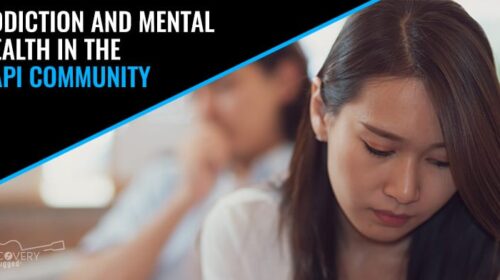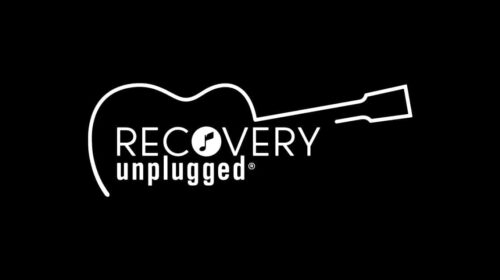July marks National Minority Mental Health Awareness Month, established in 2008 to honor the legacy of the late author and activist Bebe Moore Campbell.
Campbell was a literary trailblazer who, through her writing, addressed the often-overlooked needs of minority communities for accessible mental health and addiction care resources. Recognizing the need for a stigma-free environment where minorities could form a community and discuss their struggles openly, Campbell set out to establish safe spaces—often hosted by local churches or held inside a personal residence.
Co-founder of NAMI Urban Los Angeles, Bebe Moore Campbell revolutionized how we address mental healthcare in underserved communities, challenging us to be more inclusive, culturally sensitive, and empathetic to the needs of people of color. July was officially named Bebe Moore Campbell National Minority Mental Health Awareness Month in 2008, following the passage of a resolution aimed to achieve two goals:
- Improve access to mental health treatment for minority populations.
- Increase public awareness of mental illness among underserved communities.
This July, Recovery Unplugged is honoring Ms. Campbell’s legacy by continuing her work to spotlight healthcare barriers still affecting minority communities. We’ll examine how addiction and mental health issues disproportionately impact people of color, as well as determine the necessary steps to rectify this systemic problem within our society.
By the Numbers: A Snapshot of How Lack of Access Affects Minorities in America
Recent data shows that Americans across different racial, ethnic, and demographic groups disproportionately grapple with mental illness and behavioral health needs — and have lower levels of access to culturally competent care and resources.
- During the COVID-19 pandemic, heightened racism and violence contributed to worsened mental health among both Black and Asian communities.
- Despite comprising 33% of the U.S. population, racial and ethnic minorities make up only 10% of practicing psychiatrists in the country.
- In 2022, American Indians and Alaskan Natives had the highest rate of substance use disorder treatment needs in the past year at 28%, compared to other racial and ethnic groups.
- 55% of Asian adults and 46% of Black adults reported difficulty finding a mental health provider who could understand their background and experiences, compared to 38% of White adults.
- Hispanic adults were more likely than White adults to cite not knowing how to find a provider as a reason for not seeking mental health care (24% vs. 11%).
- Hispanic adults were also more likely to report fear or embarrassment as a barrier to seeking mental health care compared to White adults (30% vs. 18%).
A 2024 study by SAMHSA highlighted the prevalence of mental illness across various racial demographics, with the highest rates documented among:
- Mixed or multiracial individuals: 34.9%
- American Indian or Alaska Native individuals: 26.6%
- White individuals: 23.9%
- Black or African American individuals: 21.4%
- Hispanic or Latino individuals: 20.7%
- Native Hawaiian or Other Pacific Islander individuals: 18.1%
- Asian individuals: 16.4%
Working Together to End Stigma
We can only begin to improve our society by confronting and collectively addressing the disparities that persist today. It is not the sole responsibility of minorities to bear the burden of change; it is a shared endeavor among all who strive for a healthier and more just world. This July, take time to learn about other cultures and show support to those around you. Use these tips from the National Council for Mental Well-being to get started:
Take the time to educate yourself!
There are tons of great resources online, books, and documentaries that can help you understand how different cultures deal with mental health and substance use challenges.
Respect is key.
When talking to someone from a different culture, approach them with openness and respect for their feelings, personal values, and experiences, even if they differ from yours. Avoid jumping to judgments or dismissing their views.
It’s okay to ask questions!
If something isn’t clear or you’re curious, ask politely instead of assuming. Show you care about understanding their perspective.
Focus on recovery and well-being.
Shift the conversation from just talking about problems to discussing well-being and recovery. Encourage them to pursue their journey to healing while honoring their cultural practices.
Mental Health Resources for Minority Populations
1. Latinx Therapy
- Mission: Latinx Therapy aims to connect individuals in the Latinx community with culturally competent therapists who understand their unique cultural backgrounds and challenges. They provide resources and a directory of therapists who specialize in addressing mental health issues specific to Latinx individuals.
- Services: They offer a platform to find therapists who speak Spanish and are knowledgeable about Latinx cultural experiences, ensuring a supportive and understanding therapeutic environment.
2. Therapy for Black Girls
- Mission: Therapy for Black Girls promotes mental health awareness and provides access to therapists for Black women and girls. It offers resources, a therapist directory, and a supportive community aimed at addressing the unique mental health needs of Black individuals.
- Services: Their platform helps Black women and girls find culturally competent therapists who are sensitive to the experiences and challenges faced by the Black community.
3. Asian Mental Health Collective
- Mission: The Asian Mental Health Collective is dedicated to destigmatizing mental health within Asian communities and providing accessible resources and support. They aim to address cultural barriers and provide a safe space for discussing mental health issues specific to Asians.
- Services: They offer educational resources, community support initiatives, and a therapist directory to connect individuals with therapists who understand Asian cultural nuances and mental health concerns.
4. Mental Health America (MHA)
- Mission: MHA is a leading nonprofit organization that addresses mental health concerns and promotes mental wellness for all individuals, including minority populations. It advocates for policy changes, provides educational resources, and supports mental health initiatives across diverse communities.
- Services: MHA offers a wide range of resources, including screening tools, educational materials, and advocacy efforts aimed at reducing disparities and improving mental health outcomes for minority groups nationwide.

























